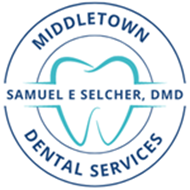Dental anxiety is a common issue that affects millions of people worldwide. The fear of dental visits can stem from various sources, such as past negative experiences, fear of pain, or even the sounds and smells associated with dental clinics. This anxiety can lead to delaying or avoiding necessary dental care, potentially worsening oral health issues. Fortunately, there are strategies to help manage dental anxiety, ensuring a calmer and more comfortable experience.
 Communication is Key
Communication is Key
-
- Talk to Your Dentist: Open communication is important in managing dental anxiety. Let us know about your fears and concerns before your appointment. Dentists are trained to handle anxious patients and can adjust their approach to make you feel more at ease. Discussing your anxiety can also help us provide tailored solutions, such as explaining procedures in detail or offering sedation options. Contact us if you have questions.
- Ask Questions: Understanding what to expect during a dental procedure can help alleviate fear. Don’t hesitate to ask your dentist to explain each step of the process. Knowing what’s happening can make the experience feel less intimidating and give you a sense of control.
Relaxation Techniques
-
- Deep Breathing Exercises: Practicing deep breathing exercises can help reduce anxiety and promote relaxation. Focus on taking slow, deep breaths through your nose and exhaling slowly through your mouth. This technique can be particularly helpful in the waiting room or during the procedure to calm your nerves.
- Visualization and Meditation: Visualization and meditation techniques can also be effective in managing dental anxiety. Imagine yourself in a peaceful setting, such as a beach or forest, to distract your mind from the dental procedure. Listening to guided meditation or calming music can enhance relaxation and make the experience more pleasant.
Bring a Support Person
Having a trusted friend or family member accompany you to your dental appointment can provide comfort and support. Their presence can help alleviate anxiety and make you feel more secure. Additionally, they can act as a distraction, engaging you in conversation or helping you focus on something other than the procedure.
Consider Sedation Dentistry
For individuals with severe dental anxiety, sedation dentistry may be an option worth exploring. Sedation can range from mild sedation, such as nitrous oxide (laughing gas), to more moderate options like oral sedatives or intravenous sedation. Discuss sedation options with your dentist to determine the best choice for your needs and ensure a more comfortable experience.
Dental anxiety is a common challenge, but it shouldn’t prevent you from receiving the care you need. By communicating with your dentist, practicing relaxation techniques, and considering sedation options, you can make dental visits more manageable and less stressful. Prioritizing your oral health is essential for overall well-being, and finding ways to overcome anxiety is a crucial step toward maintaining a healthy smile.

